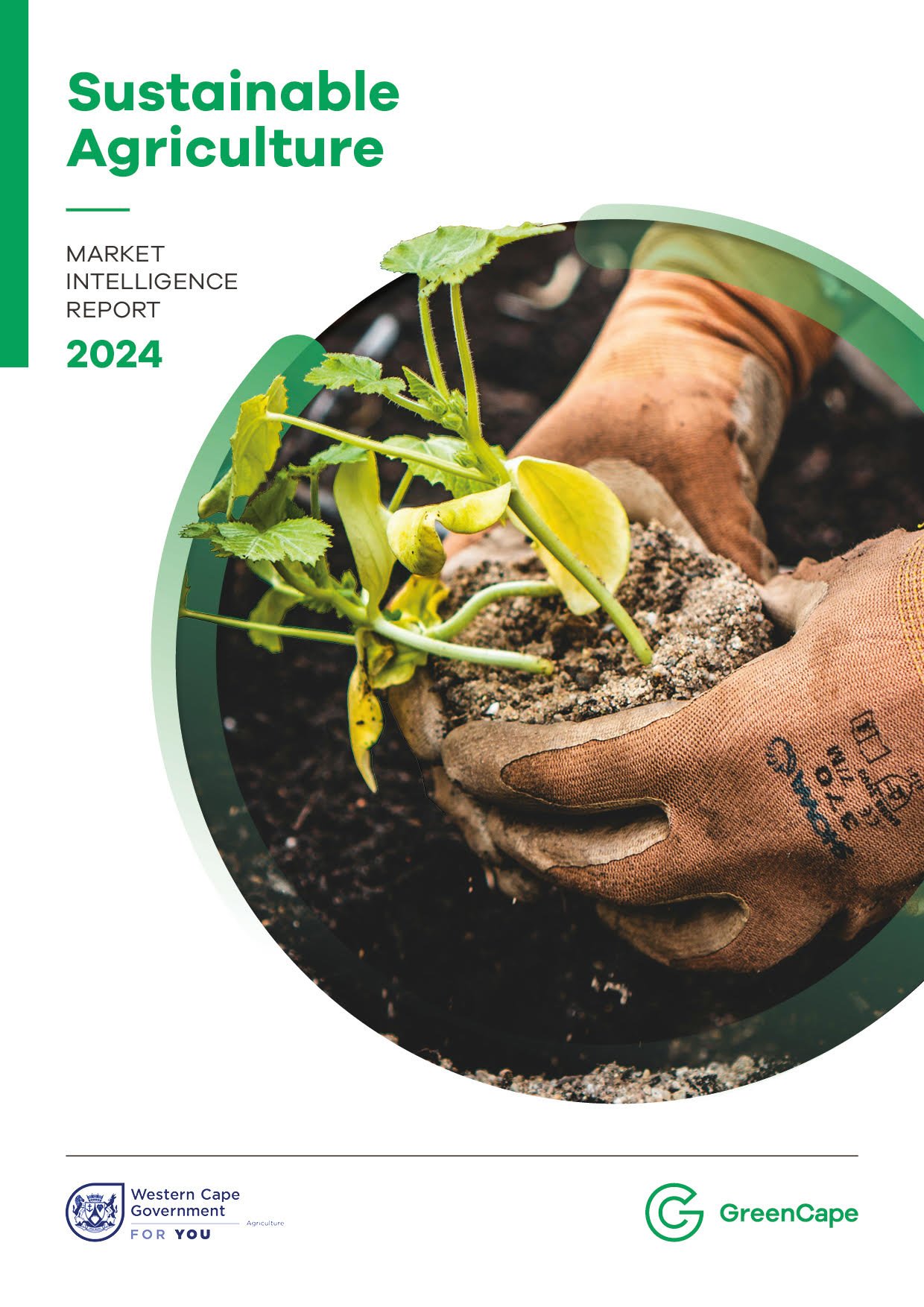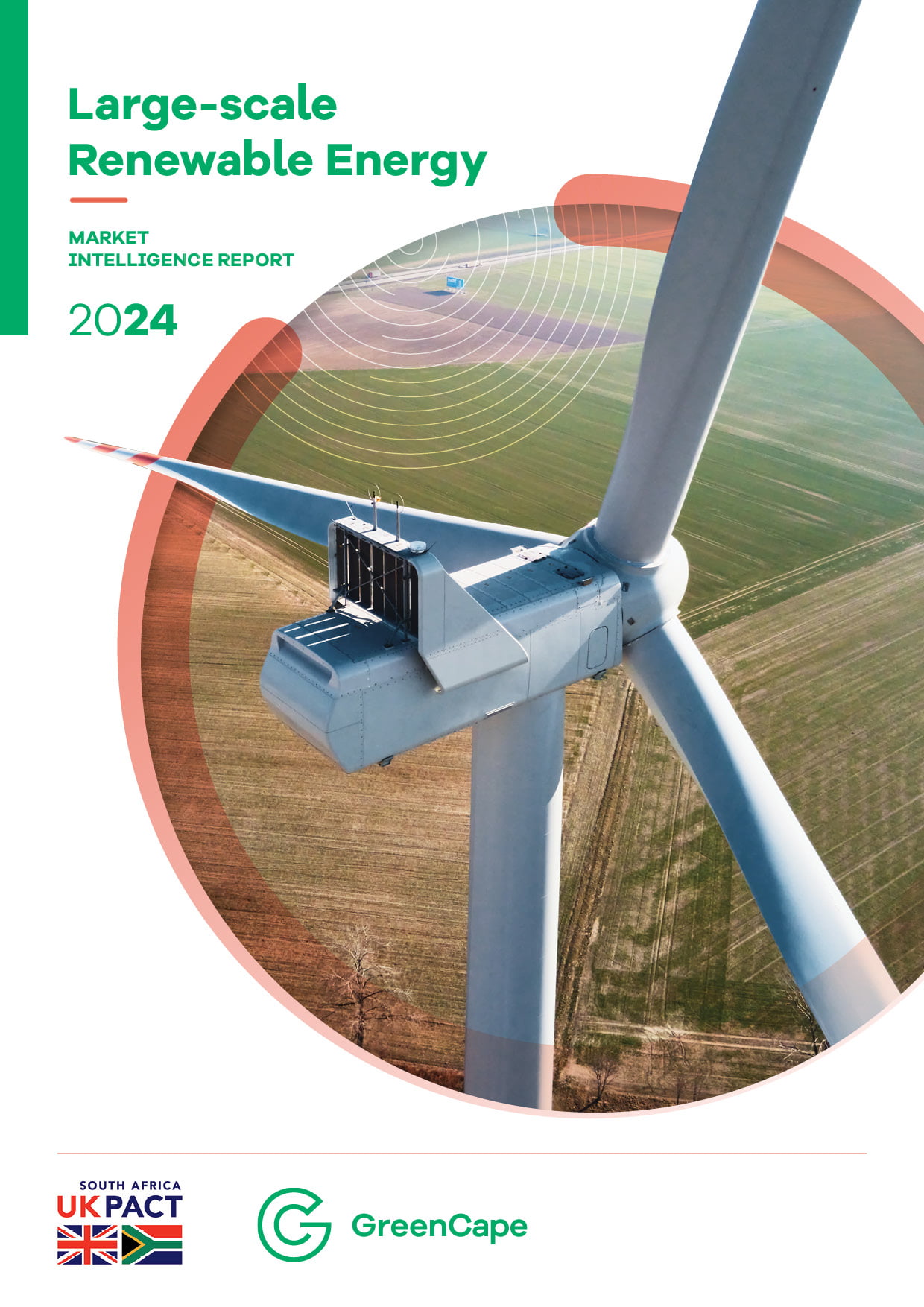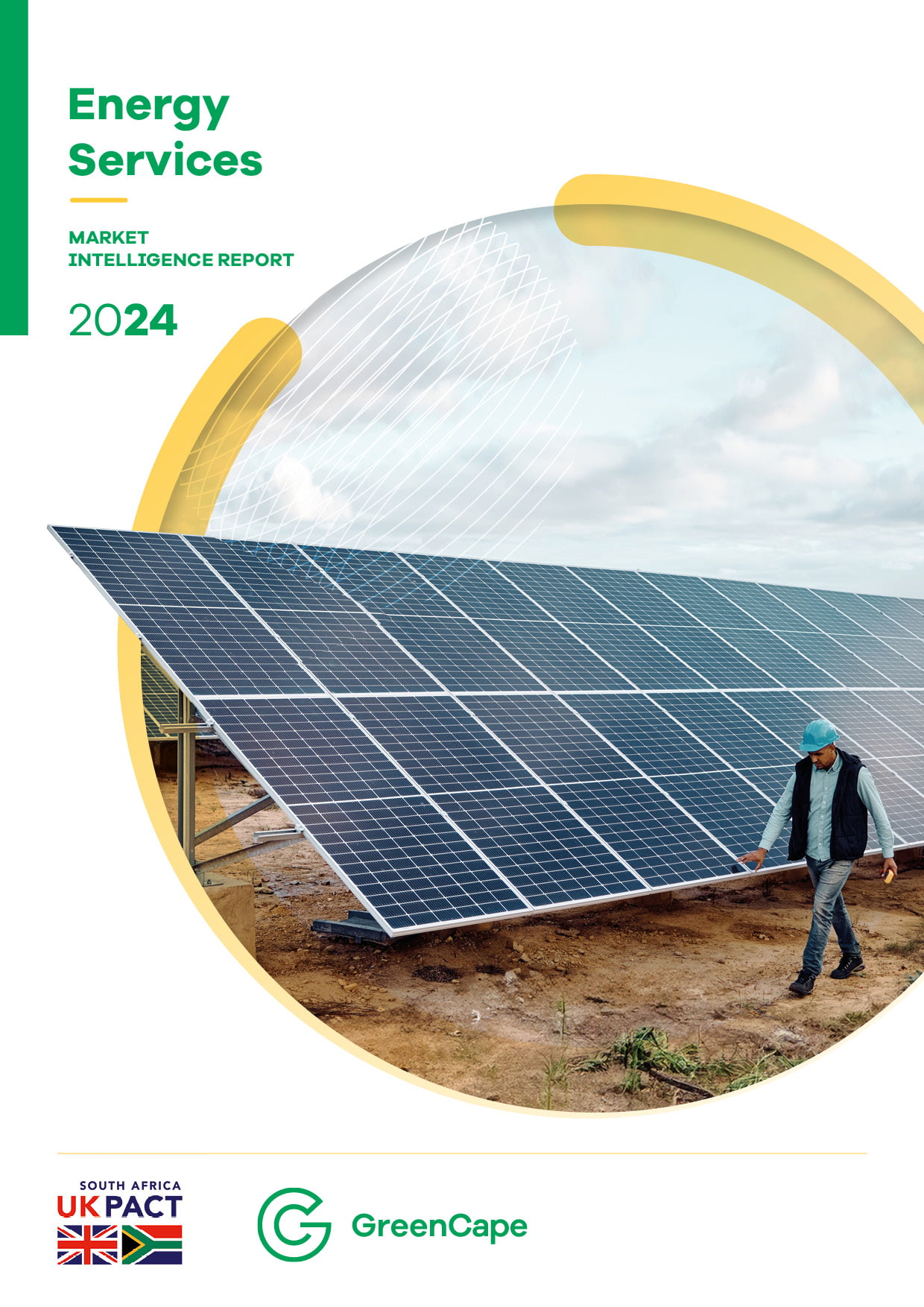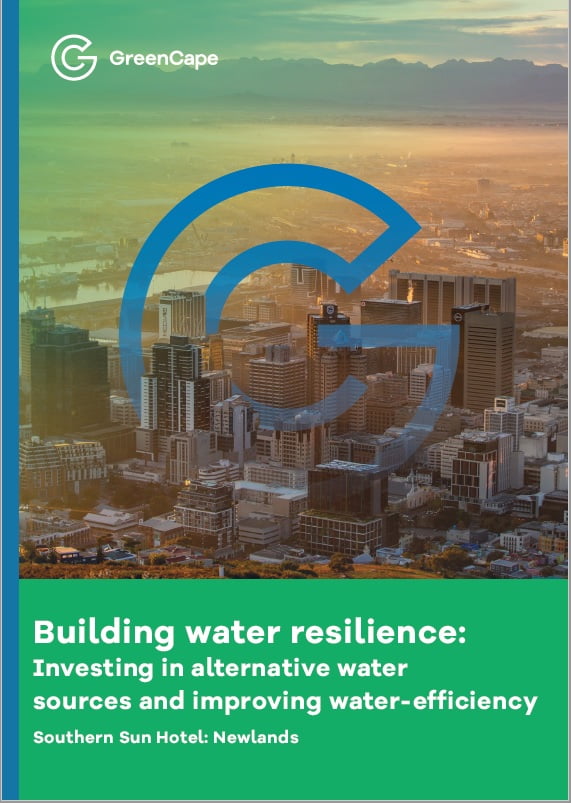GreenCape, in partnership with the City of Cape Town, has published a new case study titled: Building water resilience: Investing in alternative water sources and improving water-efficiency.
This case study is written for:
- Cities and businesses looking to improve their sustainability and implement effective water saving measures.
- Businesses looking to invest in innovative water saving methods and reduce their water bill without jeopardising their profits.
- Cities and businesses looking to build economic and water resilience in the event of acute climate change stresses and shocks.
- Funders, businesses and other stakeholders seeking to replicate similar initiatives in order to enhance water resilience.
- Businesses wanting to gain recognition from their cities and communities for their water resilient adaptation measures as well as influence other business to do the same.
Cape Town experienced a severe drought between 2015 – 2018, and climate projections indicate that these events are likely to increase and worsen in the near future. Water demand is also projected to increase and may surpass supply if no additional measures are taken to address this threat. Water users, particularly businesses, are encouraged to invest in water conservation measures and in alternative water sources in order to build water resilience. The Southern Sun Newlands Hotel has been consistently improving water resilience, but the 2017 drought encouraged the hotel to invest more in water efficient practices in order secure business security, and mitigate against future risks associated with water shortages and hiked tariffs.
Key learnings from their process included:
- To improve water resilience, hospitality and tourism industries should work collaboratively with their stakeholders.
- A systematic approach to implementing water saving interventions should be followed, starting with the easiest, least expensive initiatives.
- Simple, low-cost interventions such as awareness raising, water monitoring and metering, and implementing water efficiency interventions can reduce water consumption by 40% in a hotel.
- Unforeseen pandemics and climate change shocks, such as drought can cause devastating impacts on businesses and livelihoods.
- Stakeholder engagement and collaboration not only across different departments of a company but within a city is important to promote sustainability and water resilience.
To download the full case study, click here.



